Speakers’ Abstracts and Biographies

Carter Christopher, Ph.D.
Distinguished Research Scientist and Section Head, Human Dynamics R&D, Geospatial Science and Human Security Division, Oak Ridge National Laboratory
Country: United States of America
Title: “A Geospatial Framework for Enabling and Governing Circular Bioeconomies.”
Abstract: A central tenet of circular economies and bioeconomies (CBE) is a more sustainable use of and equitable benefit from renewable natural resources. Ensuring effective cataloging, monitoring, evaluation, and calibrated feedback across the natural resources that support CBE production and consumption processes requires an integrated use of geospatial data, technologies, and methodologies. This presentation introduces the concept of a Geospatial Framework for Circular Bioeconomies, to support the transition to and effective governance of the processes and systems that accumulate to create CBEs.
Biography: Dr. Carter Christopher is Section Head for Human Dynamics R&D and Distinguished Research Scientist in Oak Ridge National Laboratory’s Geospatial Science and Human Security Division. Dr. Christopher leads the Human Geography, Location Intelligence, Built Environment Characterization, and Geoinformatics Engineering research groups at the lab, helping to solve national- and global-scale challenges for Energy Security and National Security. Dr. Christopher also serves as ORNL Program Manager on IARPA’s HAYSTAC program, Principal Investigator for DOE’s Center for Alternative Synchronization and Timing, and Principal Investigator for NNSA’s SecuRoute project. Prior to joining ORNL, Dr. Christopher was Head of Geospatial at an aerospace start-up, and he had a distinguished 12-year career in the U.S. Intelligence Community (IC). Dr. Christopher spent more than 10 years at the National Geospatial-Intelligence Agency (NGA) where he led a range of geospatial modernization programs, including ML/AI-driven object detection and mapping, geospatial cloud modernization for the IC, data science and advanced geospatial analysis, and global GIS training. Dr. Christopher closed his Federal career at the US State Department as Deputy to the Geographer of the United (Christopher continued) States, where he helped stand up the Department’s enterprise GIS and led human geography and humanitarian mapping initiatives. Prior to Federal service, Dr. Christopher held analyst and project management roles in the geospatial private sector. Carter has a PhD in Earth Systems and Geoinformation Science, and a MS in Geography and Remote Sensing.
Email: christophesc@ornl.gov

Roberto Oscar Bisang
Professor of Agriculture Economy (Buenos Aires University – Economy School), Senior Researcher of the Interdisciplinary Institute of Political Economy (National Research Council of Science and Technology).
Country: Argentina
Title: “Structural change and productive performance: The added value of chain agribusiness in Argentina”.
Abstract: Throughout the last few years, several manufactures related to land use show a remarkable performance in production, technology and international trade. Agriculture was organized based on three pillars: i) agriculture under contract; ii) the widespread adoption of a new technological package; and iii) growing advances in the use of industrial inputs in the productive function. Said consolidation meant both a massive adoption of the new techno-productive model and an initial expansion of the agricultural frontier. In a similar way, cattle, pork and poultry modify their structure, behavior and performance. Additionally, the first industrial phase grew quickly (biofuel, soybean crushing, maize fermentation and similar others). As a result, a lot of relevant aspects of traditional agriculture were affected: localization, market concentration, and intra-activities balance. Using the value chain approach, adapted to national account systems, the report aims to outline these structural changes, and their initial consequences on behavior and performance.
Smith Biography: Roberto Bisang has a degree in Economics from National Rosario University (1977) and a Master of Science from the Center for Macroeconomic Studies (1983) and was Visiting Fellow of the Science Policy Research Unit (SPRU) of Sussex University (1988). He is a Professor of Agricultural Economics and Senior researcher (A1 category) of the Interdisciplinary Institute of Political Economy (IIEPD) of the Faculty of Economic Sciences UBA / CONICET; Coordinator of the National Agricultural Census and National Director of Statistics of the Primary Sector of INDEC (2017/9); Specialist in Industrial Organization, Technology and Sectoral Analysis and Consultant for various international organizations (ECLAC, World Bank, IDB, PAHO, WHO, UNIDO, FAO), national (MINAGRO, INTA, MINCYT) and private companies.
Email: robertobisang@gmail.com
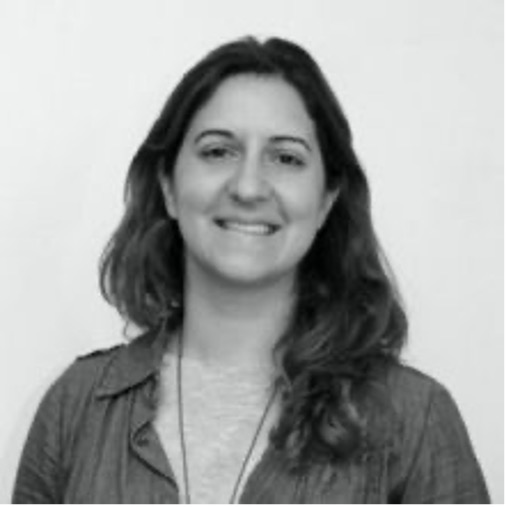
Melisa Deciancio, Ph.D.
Senior Fellow Researcher Institute for Political Science, University of Münster (Germany), Department of International Relations, FLACSO (Argentina)
Title: The role of the State and public policies in the development of the bioeconomy in Argentina
Abstract: In recent decades, the bioeconomy has been gaining space within discussions about the development model in Argentina. Its main objective is to replace fossil fuels with resources of biological origin, contributing to mitigating climate change through more sustainable production with less impact on the environment. As previous studies have shown, the bioeconomy is gaining momentum in Argentina, driven by the private sector through various business and academic initiatives, mainly associated with the biotechnology and agroindustry sectors. However, the development of the bioeconomy has been strongly accompanied by state policies during neoliberal and developmentalist governments, which has received less attention in the literature. Different state policies generated the institutional and regulatory conditions for its promotion. Although with variations, it remained a development project in governments of different political colours. The paper focuses on the extent to which the State, through the promotion of various initiatives (public policies, regulatory frameworks, public-private partnerships, etc.), contributed to the development of bioeconomy projects in Argentina and the positive results and limitations of this process. The paper will examine two cases of the bioeconomy in Argentina. First, it will investigate the development of biorefineries and the state policies accompanying their development and promotion. Since the biofuels law was passed in 2007, biorefineries and soy-based biodiesel production have become the pillar of the Argentine bioeconomy, both for their rapid growth and economic significance. Second, the paper will focus on another Argentinean bioeconomy project: biotechnology applied to genetically modified seeds, where, through public-private partnerships and the exchange of knowledge and technology, the company Bioceres has managed to become a global leader. From the analysis of policies and the actors involved in the development of both sectors, it becomes clear that the State has played an important role in accompanying the private sector in promoting the bioeconomy. Despite ideological divergences, the policies designed demonstrate the continuity between the various governments in the promotion of this strategy. Nevertheless, these strategies have shown limitations and risks as the sustainability of the processes, and negative socio-environmental impacts have not received sufficient attention. The study is based on the analysis of official documents, interviews with key actors from both the public and private sectors, and secondary bibliography that allow for an in-depth analysis of the process of bioeconomy development in Argentina and the role of public and private actors.
Biography: Dr. Melisa Deciancio is Senior Fellow Researcher at the University of Münster. She is also Research Fellow at the National Scientific and Research Council of Argentina, based in the Department of International Relations at FLACSO Argentina. Melisa holds a Master in International Relations and Negotiations and a PhD in Social Sciences from FLACSO. Her research is focused on the areas of International Relations Theory, Latin American Foreign Policy and Global Governance.

Wei Liao, Ph.D.
Professor and Director, Anaerobic Digestion Research and Education Center (ADREC), Biosytems and Agricultural Engineering, Michigan State University (MSU), East Lansing, MI
Country: United States of America
Title: “A Food-Energy-Water (FEW) Nexus Solution towards a Sustainable Europe.”
Abstract: Rapid growth of the world population, along with accelerating industrialization and expanding urbanization, quickly pushes the global community to face the serious challenges (i.e., food, energy, water, air pollution, climate change, and diseases) of living in the Anthropocene. Food, energy, and water (FEW) are the most significant ones among them, where innovations are urgently needed to develop system-based FEW solutions. In response to this critical need, Europe was selected as the target region for the study. A GIS-based model is developed to comprehensively evaluate food, water, and energy systems and conclude a FEW nexus solution to realize a sustainable Europe.
Biography: Dr. Liao, a registered professional engineer (PE), is a professor and director at Michigan State University (MSU). He obtained his Bachelor and Master degrees from Jiangnan University, China, and his Ph.D. degree from Washington State University. Dr. Liao is leading an active research program on developing integrated systems to utilize organic residues for energy and chemical production. Current research areas that Dr. Liao’s group is working on are: integrated farm-based biorefining, solar-bio-based solutions to convert organic wastes/wastewater into energy and clean (Liao continued) water, a one-carbon platform of food/fuel/chemical production, etc. Dr. Liao has been extensively involved in international research and education activities on renewable energy and environmental sustainability. His group is carrying out research projects in Latin America, Europe, and Asia.
Email: liaow@msu.edu

Aaron Smith, Ph.D.
Associate Professor and Associate Director Center of Farm Management, University of Tennessee Institute of Agriculture, University of Tennessee – Knoxville, Tennessee.
Country: United States of America
Title: “Carbon Markets and Climate Smart Agricultural Commodities: Economic Sustainability and Access to Global Markets”
Abstract: Technological advancements in climate smart commodities have accelerated globally, with new technologies and systems being rapidly implemented. This presentation discusses the interaction between technology adoption and market development with firm and industry level economic sustainability and access to the global marketplace. Development of climate smart agricultural markets to connect agriculture with rural and urban consumers necessitates a system wide analysis of firm level profitability, supply chains, and global trade. Voluntary and compulsory carbon markets and Ecosystem Credit Markets have the capacity to provide new revenue streams to the agri-forestry complex, however determining a low cost, verifiable tracking system is imperative to establish confidence in Ecosystem Credit Markets. Development of supply chains and trade agreements to provide consumer access to climate smart agricultural commodities will be imperative to long-term market viability.
Biography: S. Aaron Smith is an Associate Professor and Associate Director, University of Tennessee Center of Farm Management. University of Tennessee Institute of Agriculture, University of Tennessee – Knoxville, Tennessee. He earned both his Master and PhD degrees at University of Arkansas in Fayetteville Arkansas. His applied research and Extension program focuses on agricultural marketing, risk management, and domestic farm policy. His recent research focuses on the economics of climate smart agricultural commodities and carbon trading systems. He has published 25 peer reviewed journal articles and obtained over $45 million in grant funding as a PI or co-PI. His work has been cited by popular press outlets such as Farm Press, Bloomberg, and NPR. In 2022 he received the Early Career Contributions to Public Policy Award by the Council on Food, Agricultural and Resource Economics. The award specifically honors early-career food, agricultural and resource economists who generate science-based, policy-relevant knowledge and actively seek to make that knowledge available in a form accessible to public policy decision-makers at the federal, state and/or local levels.
Email: aaron.smith@utk.edu
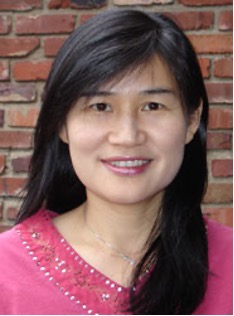
Chien-Fei Chen, Ph.D.
Research Associate Professor and Director of Energy and Environmental Justice, Institute for a Secure and Sustainable Environment (ISSE), University of Tennessee, Knoxville
Country: United States of America
Title: “The Social-Technological Approach to Examining Energy Justice and Renewable Technology Adoption.”
Abstract : Dr. Chen will present micro and macro-level analyses in two studies to explore the interconnected factors of social-psychological, economic, behavioral, and policy factors influencing solar panel adoption in the United States. At the micro-level, the first part of the presentation will focus on the online survey results from 2300 residents in the southeastern states of the United States. This study analyzes the types of motivations (environmental or financial) to adopt solar panels in various conditions relating to social, economic, and environmental factors and the influence of social-psychological and household characteristics, racial diversity, demographics on solar adoption in the U.S. Specifically, we analyzed the customer-utility relationship and its impact on household solar panel adoption. The variables include trust in utilities, satisfaction with current electricity prices, data privacy concerns, and demand response (DR) program acceptance. The second part of the presentation will present a big data result at the census tract level using the Deep Solar Data and census survey in the U.S. The analyzed variables include sociodemographic, location and racial diversity, household characteristics, energy consumption, electricity cost, energy policy (net metering, tax incentive programs), solar adoption suitability, climate factor, etc. Finally, Dr. Chen will present her energy justice framework on EV adoption and community engagement plan and policy recommendations.
Biography: Dr. Chien-fei Chen is an environmental sociologist, Research Associate Professor and the Director of Energy and Environmental Justice at the Institute for a Secure and Sustainable Environment (ISSE), the Education and Diversity at the Center for Ultra-wide-area Resilient Electric Energy Transmission Networks (CURENT), Department of Electrical Engineering and Computer Science. She is also the Co-director of Center for the Study of Social Justice at the University of Tennessee
Dr. Chen’s research centers on environmental sociology, energy justice and policy and renewable energy technology adoption and community engagement. Her main research goals are to conduct interdisciplinary research in integrating social-technological aspects in EV and solar adoption, power grid resilience, and energy inequality among underserved communities, as well as provide practical knowledge to academic, communities, utilities, and policy makers. Dr. Chen publications appear in many interdisciplinary journals, including Building and Environment, Renewable and Sustainable Energy Reviews, Environmental Sociology, Energy, Environmental Sociology, Energy and Buildings, Energy Policy, Energy Research and Social Science, Energy and Buildings, Journal of Environmental Psychology, IEEE Transactions on Power Systems, IEEE Transactions on Smart Grid, Electric Power Systems Research, and so on. Dr. Chen has been actively involved with several international and interdisciplinary networks. She has received several research awards from National Science Foundation and Alfred P. Sloan Foundation. In 2022, she has two-large scale funded NSF projects: Smart Connected Community “Advancing Human- Centered Sociotechnical Research for Enabling Independent Mobility in People with Physical Disabilities,” and “Strengthening American Infrastructure: Community- centered Decision-making Framework for Microgrid Deployment to Enhance Energy Justice and Power System Resilience.” In 2019, Dr. Chen received the Fulbright U.S. and UK Global Scholar Award for her energy justice work.
Email: cchen26@utk.edu
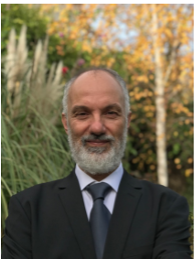
Marcelo Sili, Ph.D.
Researcher and University Professor in rural development, planning and territorial development, development policies. Specialist in development policies and projects in Latin America (IDB, World Bank, IFAD, FAO, JICA, National, provincial and local government ministries
Title: “Bioeconomic Entrepreneurship and Key Factors of Development: Lessons from Argentina.”
Abstract: For Argentina, a country with large biomass availability, scientific-technological capacities and a strong agro-industrial sector, bioeconomy comes with an opportunity for sustainable local and national development. As key actors in bioeconomic transition processes, entrepreneurs become an important source of information for the design and implementation of bioeconomic strategies and policies. However, bioeconomic activity cannot guarantee sustainable development outcomes. We examine factors that influenced bioeconomic entrepreneurship and related sustainability outcomes. We identify five bioeconomic pathways with distinct characteristics. Among the main factors driving development in these pathways of the Argentinian bioeconomy, entrepreneurs emphasized the rich endowment with natural resources and the high level of scientific, technological and entrepreneurial capacities. Public policies,
(Sili continued) economic stability and regulatory frameworks were considered as the most critical barriers to bioeconomic development. Entrepreneurs saw their contribution to sustainable development primarily in the generation of new knowledge and employment. Ecological or social motives were less frequently reported. Despite agricultural commodity production being the mainstay of the Argentinian bioeconomy, small-scale local initiatives, which also include socio-institutional and agro-ecological innovations, are coming up. Recommendations to improve the competitiveness of the Argentinean bioeconomy include the elaboration of a national bioeconomic development policy with the participation of private actors and their organizations, and the scientific and technological complex. Moreover, regulatory and normative frameworks have to be adapted and bureaucratic obstacles be reduced.
Biography: Marcelo Sili is a geographer and specialist in rural & territorial development. He works in public policies, rural and territorial development, land use and environment policy, and local and regional strategic and economic development planning in Latin American countries. He holds a Phd in Rural Development at Université Toulouse (France), his postdoctorate degree at INRA (France). Actually, he is a Senior Researcher at the CONICET (National Scientific and Technical Research Council of Argentina). Titular Professor and Director of the Center for Territorial Development (ADETER), Universidad Nacional del Sur. International consultant in local and regional development projects. Published 15 books and more than 40 scientific articles among them several Atlas (Rural spaces in Argentina, rural spaces in Ecuador, Municipalities in Paraguay), studies on the problems of rural development in Latin America and recently on problems of territorial governance, and development paradigms and models in Latin America, Africa and Asia. He has coordinated more than 60 local and regional development projects in Latin America for local and national governments, and for the international agencies (IFAD, World Bank, JICA, IADB, IICA).
Email: sili.marcelo@gmail.com – website: www.marcelosili.com
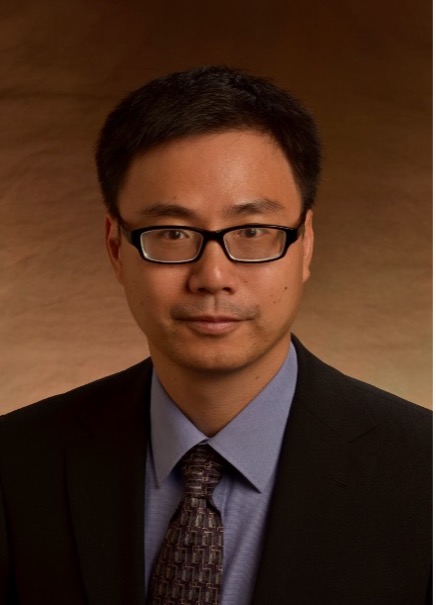
Mingzhou Jin, Ph.D.
John D. Tickle Professor of Engineering and Director of the Institute for a Secure and Sustainable Environment, University of Tennessee, Knoxville
Country: United States of America
Title: “Estimation of the Energy Consumption and GHG Emissions from the U.S. Food System.”
Abstract: Quantifying the energy consumption and GHG emissions along the U.S. food supply chain (FSC) and identifying the high impact areas are the first steps to transforming the U.S. food sector to net-zero emissions. This work provides a database of the energy consumption and GHG emissions from the U.S. food system at national and state level by FSC stage, fuel type, and food commodity. We estimate that the U.S. food system consumed a total 4,787 TBTU of site energy, 7,258 TBTU of primary energy, and generated 984.1 MMT of GHG emissions in 2016. Among all the FSC stages, on-farm production is the largest energy consumer (35% primary) and, by far, the largest source of GHG emissions (71%). Reducing food loss and (Jin continued) waste generation is one of the best options for reducing the impact of the FSC, as it also reduces the amount of food that is necessary to grow, and thus impacts the overall FSC.
Biography: Dr. Mingzhou Jin, John D. Tickle Professor at the University of Tennessee, has expertise in sustainability, climate change, data analytics, operations research, additive and smart manufacturing, energy efficiency, supply chain, manufacturing systems, logistics, and transportation. He is directing both the Institute for a Secure and Sustainable Environment and the Logistics, Transportation, and Supply Chain Engineering Lab. His research has been well sponsored with more than $10 million in grants and contracts from a board spectrum of federal, local government agencies and corporations including US National Science Foundation, US Department of Energy, US Department of Transportation, and US Department of Homeland Security. He is a fellow of the Institute of Industrial and Systems Engineers (IISE). Currently, he is Editor-in-Chief for Cleaner and Circular Bioeconomy and the executive editor of the Journal of Cleaner Production.
Email: jin@utk.edu

Daniel Tomasini, Ph.D.
University of Buenos Aires, School of Agriculture, Argentina
Title: “Environmental Law and Policies for Bioeconomy Governance”
Abstract: Bioeconomy, as a concrete manifestation of the circular economy, is not only aimed at sustaining and increasing environmental goods availability, but also at promoting environmental services (positive amenities) and reducing impacts (negative amenities). This concept is strongly influenced by public policies and financial resources allocated to improve environmental quality for people, so authorities must lead the development of bioeconomy and its coordination at territorial level, involving both public and private partners.
Biography: Agronomic Engineer from the School of Agronomy-Buenos Aires University. Specialized in economics and environmental law, with postgraduate studies in Natural Resources Law at the University of Buenos Aires and Economics and Environmental Policy at Harvard University. He has developed an academic career in which he is currently Associate Professor in the Area of Environmental Economics and Policy of the Department of Economics at the School of Agronomy-UBA, where he implements teaching activities on undergraduate and postgraduate courses, and researchs on economics and environmental policy. He also served as Director of the Department of Economics, Development and Agricultural Planning. He has been Coordinator of the Environment and Sustainable Development Cluster of the United Nations Development Program (UNDP) in Argentina, between 2004 and 2016, where he implemented national and international projects and activities related to environmental management and development. He also has an extensive experience in Argentine national and provincial public management in environmental, agricultural and energy issues, programs and projects and has been consultant to several international cooperation agencies.

Pablo Mac Clay, Ph.D.
Doctoral Candidate, University of Bonn (Germany) and Lecturer at Center for Food & Agribusiness, Universidad Austral (Argentina)
Title: “Value chain transformations in the transition to a sustainable bioeconomy”
Abstract: The adoption of new bio-based technologies that reduce our reliance on fossil fuels is presented as a path to reduce greenhouse gas emissions while creating new business opportunities. Such a transition towards a bio-based economy will require substantial investments in technological innovations that will likely affect how value chains are structured and which actors benefit from this transformation. Yet, previous studies on the bioeconomy have largely ignored the relationship between the structure of value chains and the rate of technological innovation. In this article, we propose six conceptual models to analyze the link between technological innovation, value chain structures, and welfare distribution in the transition to a bioeconomy, covering not only agribusiness firms but also emerging high-biotechnology firms. Finally, we argue that innovation in the bioeconomy and its associated value chain features may lead to welfare changes. Thus, we propose some lines of thought regarding the potential distributional effects of bio-based innovation. From a policy perspective, this debate is a relevant to safeguard social sustainability in the transition to a bioeconomy.
Biography: Pablo Mac Clay is an economist with research experience in the Argentine agribusiness sector. His academic background includes a master’s degree in Agribusiness and a bachelor’s degree in Economics. He is now a doctoral candidate at the University of Bonn. His main research interests are agri-food value chain analysis, renewable energy and innovation in the bio and circular economy.
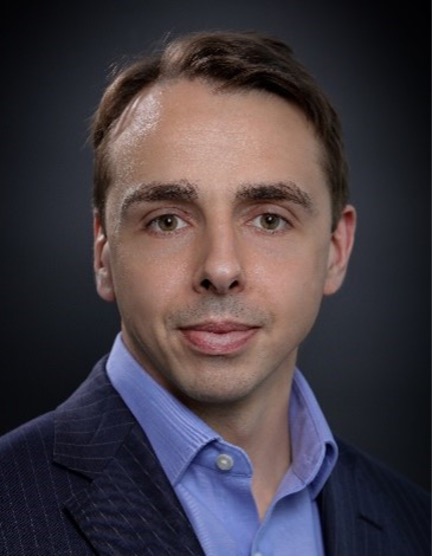
Andrew Rzepa, Partner
Gallup, The Shard, 18th Floor, 32 London Bridge Street, London, SE1 9SG
Country: United Kingdom
Title: “Global Diet Quality Project: Measuring What the World Eats.”
Abstract: Diet quality is critical for human health. Current diets are the main drivers of ill health and premature mortality, with adverse spillover effects on the environment and economy. Monitoring diet quality globally is thus essential for holding decision makers accountable for progress toward global nutrition, health, and development goals. Yet there has been no way of monitoring diet quality at scale in a credible, affordable, and timely way.
To address this, Gallup, The Harvard T.H. Chan School of Public Health, and the Global Alliance for Improved Nutrition teamed up to overcome this challenge by initiating the Global Diet Quality Project. Through this initiative the project team have created a new approach that enables countries to monitor diet quality year to year, seasonally, or even more frequently. The new approach allows users to investigate both people’s overall dietary adequacy and their consumption of foods that protect against or increase risk for noncommunicable diseases (NCDs).
This presentation will detail the work undertaken to conceptualize the approach, opportunities and limitations of the methodology developed, and present some insights from the first round of diet quality data from 2021 for 41 countries, representing two-thirds of the world’s population.
Biography: Andrew Rzepa is head of Gallup’s public sector division in Europe and the Middle East and a regional executive leadership team member. He also serves as Gallup Executive Director of United Nations (“U.N.”) partnerships. Within this role, he is responsible for the success of Gallup’s engagements with U.N. agencies. These projects include measuring Sustainable Development Goal (“SDG”) indicators focused on food insecurity and financial inclusion and numerous ad hoc projects, including measures of risk and water insecurity.
Mr Rzepa is an advisor for governments, U.N. entities and nonprofit organizations, including the U.K.’s What Works Centre for Wellbeing. He is also a senior (nonresident) associate with the Washington, D.C.-based Center for Strategic and International Studies (“CSIS”) and a Science and Innovation Council Member for “Beans is How” a multi-sectoral initiative launched at COP27 to double bean and pulse consumption globally by 2028. Before joining Gallup, Mr Rzepa served as a management consultant across various sectors, working in Brussels, Manchester and Hong Kong.
Mr Rzepa has been admitted to the roll of solicitors of England and Wales. He earned his bachelor’s degree in law and master’s degree in international and European human rights law from Durham University and his legal practice certificate from Nottingham Law School. Mr Rzepa earned a master’s in business administration with a focus on international business consulting from The University of Manchester.
Email: andrew_rzepa@gallup.co.uk
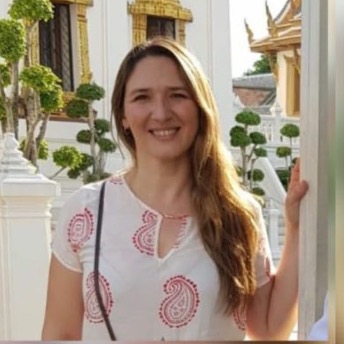
Paola Fontana, Ph.D.
Senior Researcher at INTA (National Institute of Agriculture Technology of Argentina). Coordinator of the Project: “Genetic breeding and ideotype development of industrial crops (sugarcane, peanut, yerba mate, cassava, stevia, quinoa and tea) for resilient productive systems”.
Country: Argentina
Title: “Vulnerability reduction and sustainability increase of small-scale Sugarcane productive systems”.
Abstract: There is an increasing demand for food of more nutritive value and produced in more environmental friendly systems. Sugarcane productive systems face low profitability issues; soil degradation, high GGE; high herbicides use; low variety diversity and yield reduction by diseases. Thus, they are highly vulnerable to the climate change impacts. In association with the Sugarcane Cooperatives Federation, science and technology institutions and the Province Government of Tucumán we are doing research, validation and transference of new socio-economical productive models. They include low environmental impact technologies developed by INTA for increasing systems sustainability and for adding value through the production of mascabo sugar and alcohol.
Smith Biography: PhD Paola Fontana is an Agronomy Engineer from the National University of Tucumán, Argentina. She had her Master Science degree in Agronomy Sciences in the National University of Córdoba and is PhD in Biological Sciences of the National University of Tucumán. Currently is a senior researcher at INTA, Genetic breeding, genetic resources and molecular biology area. She coordinates the Project: “Genetic breeding and ideotype development of industrial crops (sugarcane, peanut, yerba mate, cassava, stevia, quinoa and tea) for resilient productive systems”. She published numerous papers in scientific journals and book chapters and she is supervisor and co-supervisor of postgraduate fellows.
Email: fontana.paola@inta.gob.ar

Alfredo Caprile
Team Leader of the Low Carbon & Circular Economy Business Action
Country: Argentina
Title: EU Program Low Carbon and Circular Economy Business Action (LCBA): supporting companies to close cleantech business deals and reduce carbon footprint
Abstract: The LCBA is a doing-business platform funded by the European Union (EU) to facilitate exchanges between LATAM businesses with environmental sustainability problems and technology solution providers from the EU. Transforming low carbon technology demands (Caprile continued) into effective sales contracts. This business-driven initiative aims to promote the principles of the European Green Deal and Paris Climate Agreement and enhance the sustainability transition of LATAM companies to a low carbon and circular economy via the internationalization of EU SMEs providers supporting innovation & sustainability of local counterparts and increase the competitiveness of Argentinian, Brazilian Chilean and Colombian companies thanks to green technology transfer. Its goal is to facilitate the signature of business contracts between EU technology providers and LATAM buyers in three phases: Phase 1: Mapping: Identifying cleantech business opportunities in Argentina, Brazil, Chile and Colombia; Phase 2 Matching Connecting LATAM buyers with EU SMEs green technology suppliers delivering free consultancy services to the facilitate the conversion of joint business concepts with truly potential environmental impact into business contracts
The LCBA LATAM program started in September 2020 and is due to end by September 2023 together with two other sister programs that operate in Mexico and Canada. To date LCBA LATAM has been able to identify 580 business opportunities and recruited 589 EU technology providers, mobilized more than 11,000 participants, and held over 1,000 business meetings. As a result, 146 joint business concepts have been supported of which 113 have already granted with free technical assistance services. LCBA LATAM team is still recruiting companies and projects to help them both to close international business and contribute to reduce carbon footprint.
Biography: Alfredo Caprile has more than 30 years of international experience in providing financial and economic advice on projects and policies to the public and private sectors in developing countries. He is an Industrial Engineer and Mechanical Engineer from ITBA and has an MBA from Cornell University in Ithaca, New York. His consulting work has focused on the evaluation and financing of energy and infrastructure investments and for the last 15 years also on issues related to GHG mitigation and adaptation, climate change and climate finance. Throughout his career, he has advised governments and private sector clients in 25 countries in the Latin American and Caribbean, African and Pacific regions. From May 2018 to August 2021, he served as Head of International Technical Assistance for the Energy Efficiency project in Argentina financed by the European Union. He is currently Team Leader of the Low Carbon & Circular Economy Business Action project financed by the European Union, which consists of a business platform to facilitate commercial exchange between companies with environmental and economic sustainability challenges from Argentina, Brazil, Chile and Colombia and solution providers. EU technology.
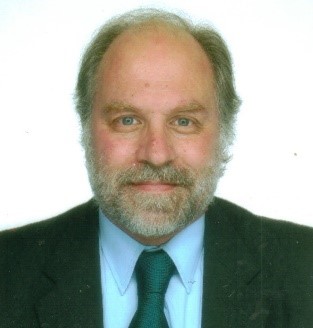
Daniel Somma, Msc, Ph.D.
Senior Researcher at INTA (National Institute of Agricultural Technology of Argentina).
Country: Argentina
Biography: Dr. Daniel Somma is a senior researcher at the National Institute for Agricultural Technology (INTA). He has an Agricultural Engineering degree from the National University of Buenos Aires and a doctoral degree from Wageningen University, Netherlands.
He has served as a consultant for agricultural planning, sustainable forestry production and information systems in different projects of a private and public nature in provincial (Salta, Jujuy, Catamarca, Santa Cruz), national and international (Uruguay, Chile, Bolivia, Paraguay) settings. He has participated as Director or Principal Consultant in projects of the IDB, the GEF (World Bank), the UNDP, the EU, and or financed by international organizations (JICA, AECI). He has been Director of the Buenos Aires Norte Regional Center (2013 – 2016) and President of National Parks (2019 – 2021).
He is the author of several publications: scientific articles and book chapters. Among them, 20 are selected referring to land use planning, rural planning and the implementation of information systems; He has participated as a speaker and lecturer in different meetings held in Germany, Holland, Italy, the United States, Brazil, Kenya, South Africa, Australia, New Zealand, Paraguay, Bolivia, Chile and Mexico.
He has received several scholarships for higher education: Junta de Gobierno de Andalucía (Spain), Royal Netherlands Fellowship (ITC and Agrarian University of Wageningen, Holland), Fulbright Commission (University of California Davis and Berkeley), Canon National Parks Science Scholars Program (Canon USA Inc., AAAS, National Parks Service, USA) and New Zealand Government scientific cooperation among others.
Email: somma.daniel@inta.gob.ar